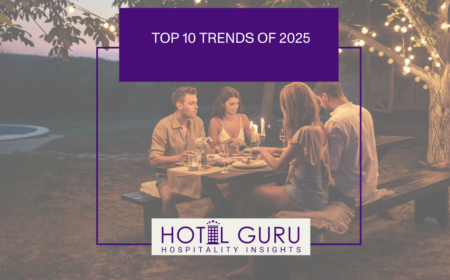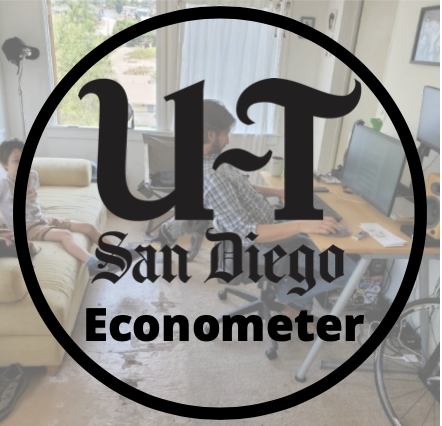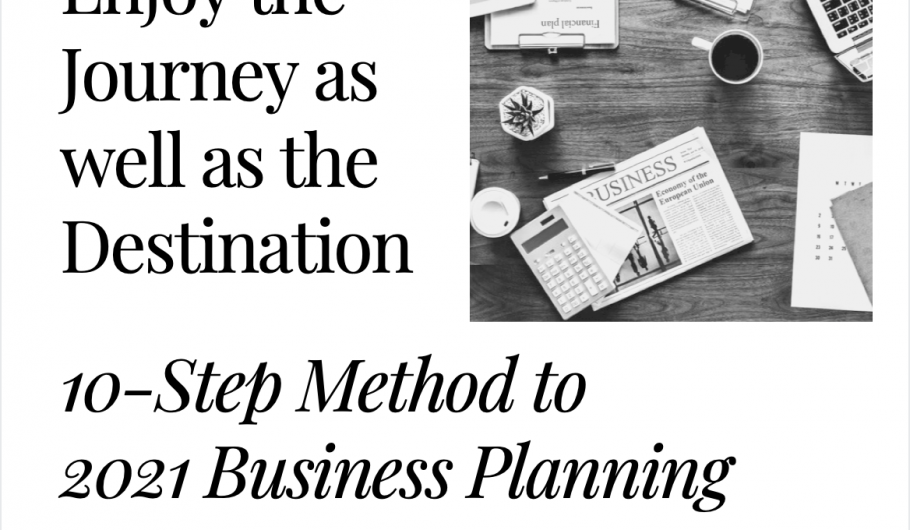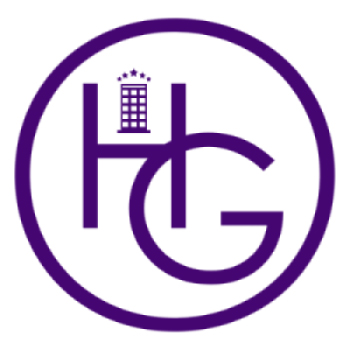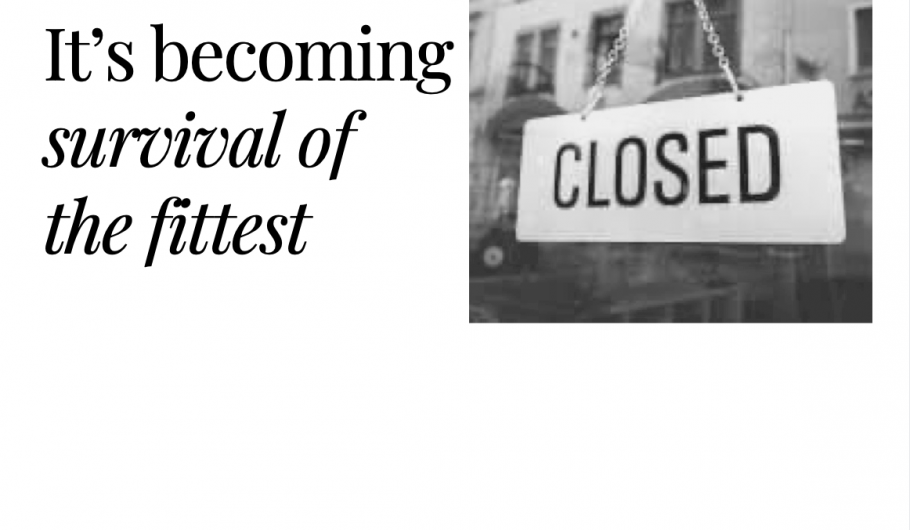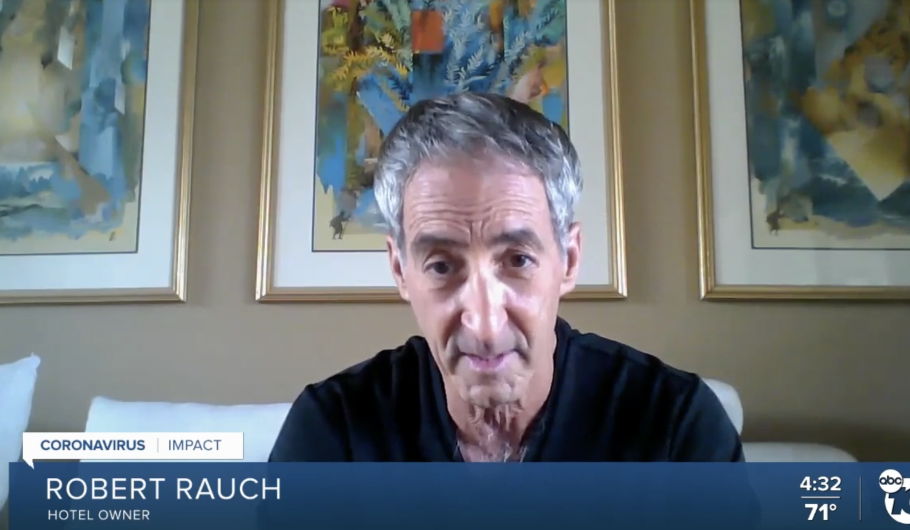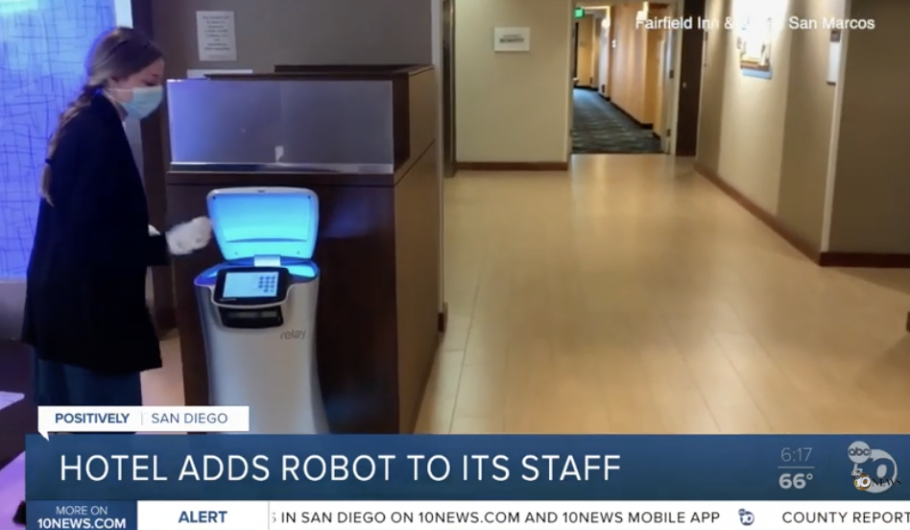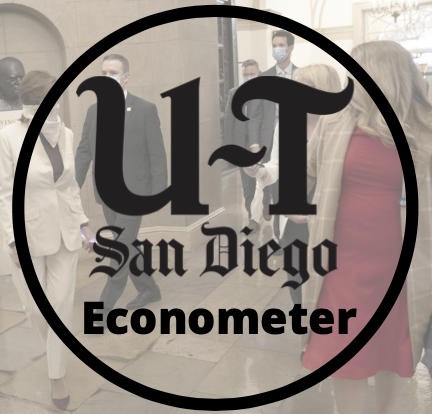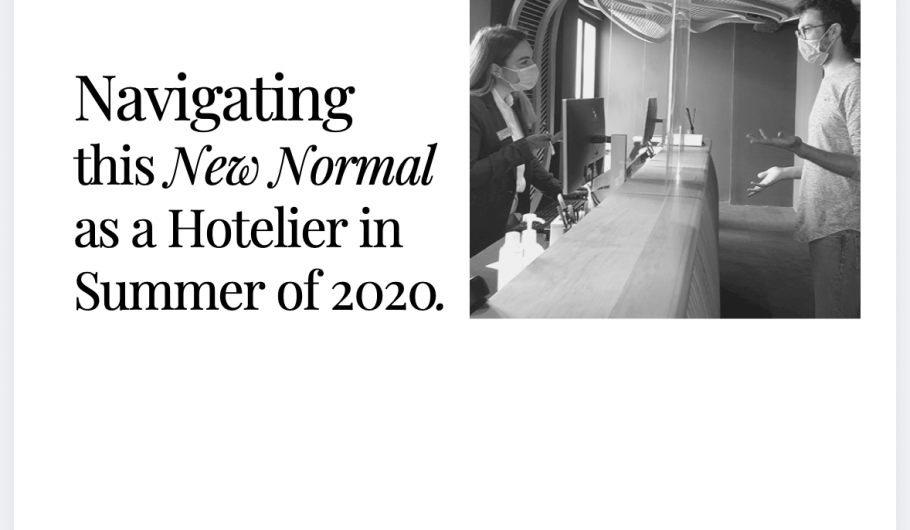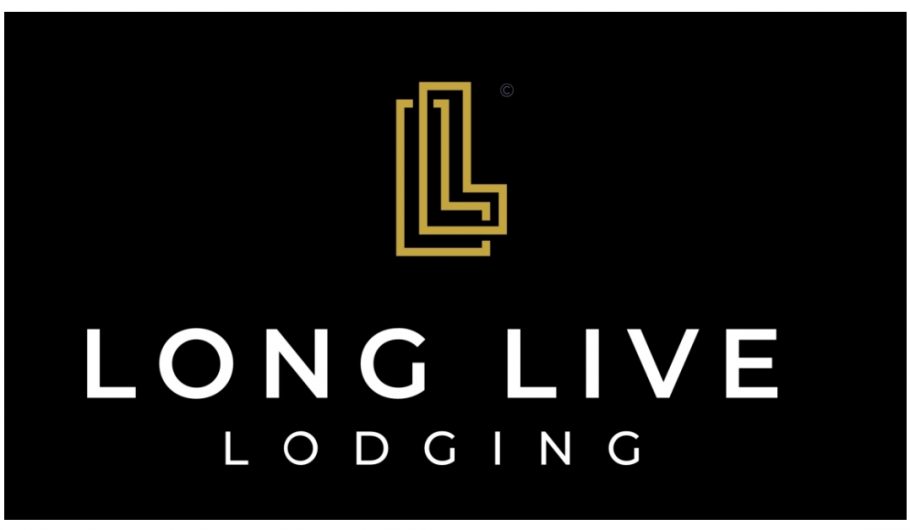Will workers increasingly leave the work force if schools stay closed?
Bob Rauch, R.A. Rauch & Associates
YES: School is de facto daycare for many families and for our kids, school is too important to ignore this dilemma. Who will stay at home with the kids in our nanny state? The Families First Act guarantees that parents of school-aged children can take up to 12 weeks of leave at two-thirds of their regular pay, capped at $200 a day, if local schools/daycares are physically closed due to the pandemic. It’ll be used.
Read full San Diego Union Tribune article by Phillip Molnar here.
Enjoy the Journey as well as the Destination
Our 10-step Method to 2021 Business Planning
Every year during late August and early September, we embark on business planning for the following year. This year has been highly unusual to say the least. So, despite the low revenues, difficult operating environment, stress and anxiety and disastrous cash flow, try to breathe and enjoy the journey. It will make the transition to the other side more enjoyable and likely more successful. Here are 10 items to put on your “to-do” list that will get you there and keep you focused!
1) Complete your research.
Business plans for 2021 must be clear, concise and simple and are most effective when done prior to completing a budget. Review macroeconomic data which currently indicates a gradual economic turnaround by the second quarter. As with previous recessions, domestic leisure demand will be the first segment to bounce back, followed by corporate transient and corporate group demand drivers once a vaccine is broadly dispersed and a feeling of safety takes hold. Review your trend report and competitive set information from STR and Kalibri Labs, which will indicate respectively where you are vis-a-vis your competitive set and what costs are incurred by every single reservation. Your table of contents should include basic macro-economic data, hotel supply and demand, competitive environment, action plans and expected results. The action plan details who, what, when and all costs associated with each action. Keep it simple.
2) Develop a budget.
Budget accuracy depends on the determination made to gather correct and current market data, so again, do your research! Once you have an in-depth understanding of 2021 market conditions specific to your property, your budget will streamline operations and create strategic opportunities for your hotel, ensuring that every dollar spent goes towards boosting your bookings, improving your reputation and generating the highest possible returns. Don’t forget to budget for cybersecurity, IT and wage increases as well as legal costs based on today’s litigious environment.
3) Coordinate multi-pronged marketing efforts.
Review the STR report, Demand and Agency 360 from TravelClick and other market intelligence and market pace reports carefully. Ensure your email lists are updated for newsletters and blasts and that you are compliant with GDPR as well as CCPA if in California. Meet with general managers and marketing team members of competitor hotels. Site tour each business and establish a referral program. Coordinate a market review with your franchise marketing manager if appropriate and discuss opportunities for digital marketing and pay per click.
Meet with key contacts at your brand, visitor bureau and chambers of commerce. Qualify key companies and individuals to create or update your own email list. Business Journals also have great lists of top businesses and employers. Don’t forget to check your database in the reservation system for any errors – compare it to the convention and event calendars to ensure peak periods are blacked out. Take advantage of your Cvent listing by promoting your meeting space with interactive, socially-distanced Social Tables floor plans. Continuously create and deliver “can’t-resist” content for your website and e-blasts. Post to social media at least 2 times per week to “tell your story,” keep guests up to date with sanitation protocols, and promote your property to domestic drive markets.
4) Create a public relations strategy.
Brainstorm and create possible press releases for the coming year along with a public relations plan. Contact each segment specialist for your franchise sales staff and local tourism agency. This will help to see what opportunities are available to promote your business at future segment specific directories or sales missions. Naturally, if you are independent, you must ensure you have representation to compete in each market segment. The PR Plan is part of your above-mentioned action plan.
5) Implement a focused sales plan.
Take the time to pause and reevaluate your overarching sales strategy. Even though hotel sales have hit all-time lows during the COVID-19 pandemic, there are still thousands of RFPs flowing through the system. Create a lead form at the front desk. Review competitor web sites and all competitor social sites, including Instagram, Facebook, and Twitter. Look at all previous business and examine key marketing reports. Now is the time to strengthen community relationships and to explore creative partnership opportunities such as space sharing or creating new experiences with local vendors because local markets will recover first. Be a lobby lizard at your own hotel and talk to guests because this leads to guest loyalty and gives you timely insight on who is traveling!
6) Review your revenue management tactics.
Conduct rigorous benchmarking, prepare accurate projections and develop a responsive new business mix — these are the pillars of sound revenue optimization and the foundation of a strong post-COVID business strategy. Position your property in the right channels with software and optimize rates for your unique location and rooms. As you increasingly provide guests with an authentic connection to your area, a well-configured hotel revenue system can help you optimize these strategies and boost revenue. Do not listen to pundits who say, “do not lower your room rates.” Yes, it is better to add value than to cut rates, but do what you have to do to survive! Leisure guests are still the biggest market segment.
7) Address changing COVID-19 protocols.
In developing this year’s plan, remember that the world is changing quickly. Continuously update health and safety protocols to keep staff members and guests safe as well as facilitate meetings. Offer flexible pricing, space options and contract terms, as well as offers tailored to customer needs — such as simplified agreements for small meetings. Collaborate with planners to achieve meeting objectives while addressing health and environmental concerns specific to your location. Continue to revise signage, cleaning schedules, and food-and-beverage offerings based on regulations and local guidelines. Design efforts around this question, “Once you’re willing to travel and gather, what will be important to you?”
8) Analyze current and upcoming trends.
Perceived cleanliness is a primary factor in customer experience and a clean record in hygiene and pest control will help to ensure a positive experience, which is a key challenge facing the hospitality sector right now. High-quality sanitation protocols are essential to protect brands and reduce the threat of negative reviews in online forums and on social media.
Sustainability is a thing and guests care about it. Simply put, sustainability is “meeting the needs of the present with innovative solutions without compromising the future.” Guests do care about that and also want an experience — this is where a story that talks about your features and benefits is very helpful. Otherwise, our hotels are just places to sleep.
Mobile will keep influencing the industry, along with other disruptive technologies that brands will keep on incorporating into its guest offerings. Think Internet of Things (IoT), Artificial Intelligence (AI), Virtual Reality (VR), and facial recognition.
9) Integrate technology wherever possible.
It’s no surprise that the future of the hospitality industry will be powered by digital technologies. When looking for productivity, the promise of AI is a reality and is here to stay. In our case, we are using robotics, not to supplant jobs, rather to make them more effective and efficient. Maidbots will vacuum hotel rooms and corridors, allowing housekeepers to avoid back injury and stabilize room cleaning times since we have added an extra layer of COVID preventive disinfecting. Technology is also helping to keep everyone safe. As an example, we have a room-service robot that makes contactless deliveries right to a guest’s room. The use of mobile ordering technology can also help in converting traditional dine-in F&B outlets, to takeout and delivery outlets, to comply with social distancing ordinances.
10) Be resilient.
The resiliency of hotel owners and operators has been greatly tested this year. There will be several phases to the rebound, but we will recover. Count on pent-up demand in 2021 from overdue vacations and postponed weddings, honeymoons, birthday celebrations and anniversaries. There is some comfort knowing that travelers will be back on the road in full force within two years, so review investment plans and continue to identify opportunities for cost reductions. To a speedy recovery!
It’s becoming survival of the fittest
Prepare your operations to meet what guests are looking for, and prepare your teams for the realities of today’s environment.
Mike Ditka, former NFL star player and coach once said, “Success is not permanent, and failure is not fatal.”
Today it is paramount to test, experiment and kill the projects that don’t work. Business models and budgets became obsolete immediately. Culture and teamwork became even more critical as our world got turned upside down. As an owner or operator of a hotel, we are now a full-time coach if we were not before. This requires clarity and focus as some departments have really been affected.
Sales
Today’s sales process is virtually all digital. We are now required to build a virtual company, where video presentations and electronic content rule the day. Those who feel this is a short-term situation should prepare for a bit longer than this summer. McKinsey & Co. just published a research piece suggesting recovery to pre-COVID levels could take until 2023. They do, however, also have a scenario that brings the market back by 2021. Either way, the rest of this year is about mitigating losses, avoiding litigation and driving enough revenue to reduce operating losses, rather than making profits.
Guest wants and needs
Guests are saying they want contactless check-ins and check-outs and added emphasis on hygiene. Legionnaires Disease can enter the water system, and a COVID-19 outbreak would be as bad or worse. Concern that we are taking reasonable care, avoiding negligent training and using our own policies are some of the challenges of the day. Negligence avoidance, compliance with return-to-work guidance, action plans, robotic delivery and significantly improved sanitization and cleaning protocols must all be in place.
Today’s guests want more intense room cleaning, including UV light disinfectant or hospital-grade sanitization, COVID-19 rapid tests for every guest at check-in, additional cleaning downtime between stays and temperature checks for every guest. They would like to be offered free hand sanitizer and let rooms sit 72 hours before cleaning. They want employees wearing personal protective equipment/masks and free personal protective equipment/masks provided to them. They want fewer seats/tables in restaurants, bars and lobbies and no housekeeping during their stay (to minimize exposure). Another comment on the McKinsey survey was that guests should fill out a declaration card stating they are COVID-free.
Trends
For business travelers, demand will likely come back unevenly. Essential travel will differ by industry, reports McKinsey. According to executives and human resources executives interviewed in April 2020 across an array of industries, every one of their companies is using technology as a substitute for nonessential travel. Most expect that certain types of travel—like internal meetings—will never fully return to pre-COVID-19 levels. Many companies say they plan to turn off their travel restrictions in phases with client facing visits such as site visits and sales calls likely to return first. Conferences and industry events will likely be the last to return.
Challenges
Hotels face the prospect of a long recovery. Keep in mind that STR data excludes closed hotels, which causes the reported RevPAR and occupancy metrics to appear better than the underlying fundamentals would otherwise suggest. For April and May, just under 15% of hotel rooms were temporarily closed and excluded from STR’s data. This artificially improved occupancy levels plus there was a difference between drive-to markets and those that require flights.
The recently released fourth wave of the MMGY Travel Intelligence and U.S. Travel Association’s TIPS report indicates that travelers are less interested in great travel deals and more interested in slowing the spread of COVID-19. They are, however, more interested in postponing travel than cancelling travel.
Finally, COVID-19 has created some potential liabilities for hotel operators. These include the need for training on prevention and protocols, wage and hour law violations due to understaffed team members who can’t have breaks, failure to ensure that guests and employees are protected from COVID-19 and the need for some signing of waivers to provide at least some level of protection from the above. I’m not suggesting a primer on hotel law, but assumption of risk, contributory negligence, reasonable care and indemnification agreements might come in handy. See your employment lawyer.
Check out the original article on HNN here.
Report on state of local San Diego tourism
Watch ABC 10’s report on state of local San Diego tourism here -> https://youtu.be/ju948CUaBkM
Is it time for another stimulus bill?
Our San Diego Econometer panel considers another stimulus bill to help with COVID-19 economic woes.
Q: Should the federal government wait a while before another stimulus bill?
Bob Rauch, R.A. Rauch & Associates
YES: Wait on another $3 trillion. It makes sense to extend the covered period of the Paycheck Protection Plan from June 30, 2020 to later, push back the loan maturity period from two years to three years and reduce the 75 percent requirement so that employers can use these funds without bringing back staff to a closed business. Let’s also see which states have been managing their funds to avoid federal funds supporting runaway pension programs.
Read full article by Philip Molnar here.
Navigating this New Normal as a Hotelier in Summer of 2020
From having to practice social distancing and wearing masks to watching just about every type of business struggle to survive, this virus has turned into something none of us expected. Over the past three months travel has come to a virtual standstill, but as the month of May comes to a close, we’re beginning to see some light at the end of the tunnel. “The trend of ‘less bad’ data continued with occupancy and ADR on a slow climb driven by a fifth consecutive week-to-week increase in demand,” said Jan Freitag, STR’s Senior VP of Lodging Insights. Year-over-year declines continue to remain significant, but we feel the market will improve dramatically this summer after this promising Memorial Day Weekend for some. It is amazing that despite the California Governor Newsom’s call for no leisure travel, some hotels filled up.
Protocols
By now, hotels have developed and enhanced their hygiene practices and sanitation protocols. We are still waiting on uniform industry standards from Marriott, Hilton, IHG, and other large brands, but are working with state and national health guidelines so that all guests and staff recognize that health and safety is everyone’s top priority. Until those industry standards are more firmly established, transparency is critical. This means displaying and communicating changes in policies so that guests are cognizant of current requirements (face masks in public areas, limiting 1 guest per elevator ride, etc.) and staff is properly trained (wearing disposable gloves, using correct disinfectants and truly sanitizing every area of the hotel and guest room).
Marketing
As hotel market dynamics change rapidly, it is important to constantly reassess campaigns, creative, and even guidelines. The one constant assumption to have in this situation is that things will change. What our team decided two weeks ago isn’t necessarily appropriate today. Brand and image protection are more important than ever as it will have long-term implications for how our properties are perceived both by guests and by staff. Group business will have to be sold based on much more scientific protocols like diagramming software that optimizes capacity based on all new formulas. Sales calls will require more comprehensive data gathering followed by more “Zoom-style” calls, 3D virtual tour experiences that will replace onsite walkthroughs this year and a much more creative approach to getting in the door so to speak.
Operations
While maintaining the safety of staff and guests, now is the time for operators to assess employee retention, PPP forgiveness and operational policies to mitigate COVID-19’s impact and position ourselves for a strong return. We need to analyze our availability of cash via liquidity management strategies, such as optimizing one-time revenue opportunities, realigning and reducing costs, employing working capital crisis management techniques and deferring capital expenditures. Property improvements that require a capital expenditure might actually be more productive now with lower occupancy levels—it’s all about cash management. Strategies should reflect our commitment to the guest experience while emphasizing the importance of booking as many rooms as possible at any given time to increase profitability. Spacing out check-outs and check-ins is a great idea now but down the road, it must be balanced with reality.
Market Segments
Historical analysis indicates that leisure travel comes back quickly based on a combination of pent-up demand, targeted drive-to markets and rate discounting, while group travel takes longer to rebound. Rate discounting could lead to longer-term issues with average daily rates so it is critical to carefully think through revenue management and channel strategies. While group travel will take until this fall, now is the time to be selling and business travel will require immediate attention in June to pounce on the return of that market segment.
Room revenue has always been paramount due to profit margins but we must remember that ADR will be tougher this year and selling services that have both a reasonable margin and provide competitive differentiation might be worthwhile. This means selling food and beverage like never before and seeking other revenue streams. Resort fees are hated but value-added services that are not required are not hated. Think about some partnerships that could drive revenue—remember, vendors are not our enemies!
Final Thoughts
Once travel resumes, the combination of pent-up travel demand and federal aid will help fuel the recovery as we move into the latter part of this year. After reacting and recovering, attention will turn to how to grow. Strategic options will exist that were not available before, and operators should start thinking about: (1) Where will opportunities arise as a result of the changing environment? (2) How can we prepare ourselves to take advantage of any opportunities that arise?(3) How can we build resiliency into our operations to protect against similar future shocks and the resulting disruption? Maybe we can take back market share from Airbnb with superior sanitation and safety protocols and increase our percentage of direct bookings to reduce OTA commissions.
As we all collectively grapple with what this global pandemic means for us — as humans first, but also as professionals — there are often more questions than answers. For most of us, daily life does not look the same these days. Living in times of uncertainty can be overwhelming, so we cannot forget to foster our personal wellness. Limit the news, take advantage of stress management techniques and stay in touch with friends and family. To navigating this new normal safely and successfully and remember Shakespeare’s famous words, “the world is your oyster!”
By Sarah Andersen and Robert Rauch
Note: Sarah and I will be taking a short break from these timely articles. We hope you find the content here at www.hotelguru.com to be compelling, clear and concise and having enough range of content to find almost any hotel industry subject covered.
LodgingStream: A Brave New World
Bob Rauch and other industry participants explore how COVID-19 has altered the hospitality work environment, from social distancing to front desks with plastic shields to working remotely.
Watch here: https://vimeo.com/417852165

